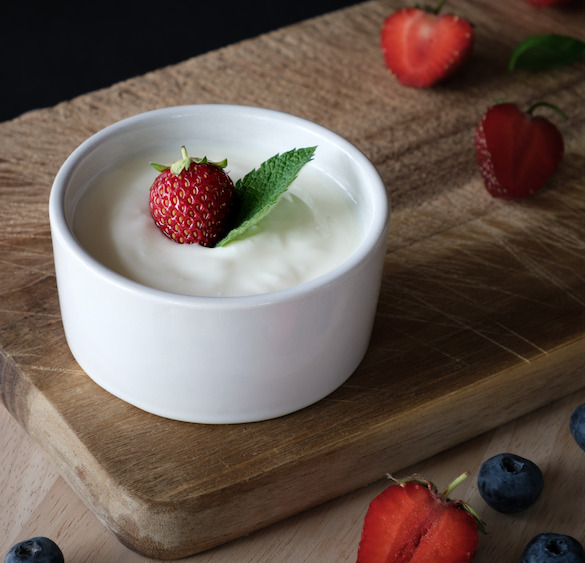Probiotics are beneficial, live microorganisms found in the human gut. Probiotics are actually bacteria. Bacteria usually is associated with germs. However, probiotic bacteria is beneficial, helping the body function properly.
Probiotics are organisms that help to boost the amount of helpful, good, beneficial bacteria in our guts. Nestled in our guts are trillions of live microorganisms that make up a microbiome. Probiotics are live bacteria that line the digestive tract and help the body absorb nutrients. They also help fight infection. Probiotics help to boost immune function, decrease the risk of disease, and improve overall health.
Bacteria in our bodies outnumber the cells by ten times. Probiotics are identified by their specific strain, which includes the genus, the species, the subspecies, if applicable, and an alphanumeric strain designation. The seven core genera of microbial organisms most often used in probiotic products are Lactobacillus, Bifidobacterium, Saccharomyces, Streptococcus, Enterococcus, Escherichia, and Bacillus.
Good bacteria keeps you healthy by supporting your immune function and controlling inflammation. Certain types of good bacteria can also:
- Help your body digest food
- Keep bad bacteria from getting out of control and making you sick
- Create vitamins
- Help support the cells that line your gut to prevent bad bacteria that you may have consumed through food or drinks, from entering your blood
- Breakdown and absorb medications
What are the most common types of probiotic bacteria?
Though there are many types of bacteria that can be considered probiotics, there are two specific types of bacteria that are common probiotics found in stores. These include:
- Lactobacillus
- Bifidobacterium
- casei is a particular strain of probiotic that reduces antigen-specific skin inflammation.
Probiotics are also made up of good yeast. The most common type of yeast found in probiotics is:
- Saccharomyces boulardii
Some of the conditions that might be helped by increasing the number of probiotics in your body, through food or supplements, include:
- Diarrhea caused by antibiotics and from Clostridioides difficile (c. diff) infection.
- Constipation
- IBD Inflammatory bowel disease
- IBS Irritable bowel syndrome
- Yeast infections
- Urinary tract infections UTIs
- Gum diseases
- Lactose intolerance
- Eczema (atopic dermatitis)
- Upper respiratory infections (ear infections, common cold, sinusitis)
- Sepsis (specifically in infants)
Statistics
Some of the facts about probiotics include:
- Human skin and digestive system hosts about 2,000 types of bacteria
- Probiotics are in our systems from birth
- Probiotics reduce inflammation
- Probiotics promote healthy digestion
- Probiotics help to maintain healthy skin
- Probiotics help the gut make vitamins, like B vitamins, Vitamin K2, and butyrate
- Probiotics help to eliminate bad microbes
- Probiotics create enzymes that destroy harmful bacteria
- Probiotics stimulate secretion of IgA and regulatory T cells to support immune function
- Probiotics help recycle bile
- Probiotics help to detox of chemicals and poisons
- Probiotics act as an antioxidant in the body
- Probiotics provide protection against food allergies
- Probiotics help lower blood pressure
- Probiotics may help fight or reduce the risk of developing diabetes
Foods to Avoid
Some foods that interfere with probiotics include carbonated drinks, processed foods, GMO products, red meats, gluten-rich foods, and tap water. Keep in mind that while probiotics can be found in dairy foods, commercially sold yogurt and kefir have added sugars, preservatives, additives, use pasteurized milk, bad quality guar gum and bacteria.
Foods that Help
In the past, humans had enough probiotics in their diets that came from fresh foods, good soil, and foods that were fermented as an attempt to preserve them and keep them from spoiling. Today’s farm to market processes like refrigeration and use of chlorine leaves our food with very little or no probiotics. Additionally, many foods now contain antibiotics that dangerously kill off good bacteria in the gut.
Probiotics improve digestive health. Research has discovered that probiotics are effective against several forms of all types of diarrhea and help with constipation relief, reduce IBS Irritable Bowel Syndrome pain, and may help protect against inflammatory bowel diseases IBD, Ulcerative colitis, Chrohn’s disease, and gluten issues including Celiac disease. Probiotics help eradicate H. pylori.
We want to nourish the good bacteria to always have a balance between the good and the bad bacteria. Sugars feed the bad bacteria, so by eliminating any type of sugar during your healing process you will help balance the bacteria. Eat high quantities of vegetables that are fiber that act as pre-biotic, as food for good bacteria. Probiotics also help make acids like lactic acid to help with pH and the absorption of certain minerals in the digestive tract.
You can also get good bacteria from fermented foods like the following foods made at home:
- kimchi
- miso soup
- tempeh
- natto
- sour croute
- pickles
- non-commercial kefir
- non-commercial yogurt
- olives
- probiotic drinks, such as kombucha
Emotional Component
There is an important connection between the gut and the brain. Scientific studies have linked gut inflammation with disorders such as mood disorder, autism-spectrum disorders, attention-deficit hypersensitivity disorder, depression, and anxiety. The majority of serotonin is produced in the gut. If you are experiencing mood swings or depression, you may want to think about taking probiotics. Our gut is truly our second brain, that is why we need to take care of our gut health.
Herbs and Vitamins that Help
Probiotic supplements are beneficial, but there are many different kinds on the market. The most common species include Bifidobacteria and Lactobacillus. But, there are many more specific strains that include:
- Bacillus coagulans
- Bacilllus subtilis
- Bifidobacterium bifidum
- Bacillus clausii
- Lactobacillus fermentum
- Lactobacillus reuteri
- Lactobacillus acidophilus
- Lactobacillus gasseri
- Lactobacillus rhamnosus
- Lactobacillus sporogens
- Saccharomyces boulardii
It is important to use the right probiotic for the condition you are treating. Purchase a good quality probiotic from a practitioner, and take them on an empty stomach. Take the probiotic first thing in the morning about a half hour before eating to make sure the supplement is able to reach the digestive tract before it gets filled with food.
The label should give the genus, species, strain, and the colony forming units CFUs. There are many different companies who produce probiotics. It is also important that the manufactured probiotic has been properly stored and cooled since probiotics die under heat.
MegaSporeBiotic are probiotics that are 100% spore-based and broad spectrum. The formula this brand of supplements uses is a unique all-spore formula that is successful in reconditioning the gut by promoting microbial diversity while maintaining healthy gut bacteria. The company boasts of a 5-year shelf life and does not need to be refrigerated. The blend is 5 Bacillus spores. These dormant spores become active once they reach the large intestine. Instead of reseeding with probiotic strains that do not survive digestion, this unique blend reconditions the gut.
Digestion Effect
The human digestion system contains about the same number of gut bacteria molecules as it does cells in the entire body. Antibiotics have extreme side effects in the gut. Bacteria become resistant to antibiotics when it is overused or misused. Talk to your doctor to make sure if you really have to take antibiotics. If you do, then take probiotic together with the antibiotic.
Essential Oils that May Help
In addition to using probiotic supplements and eating probiotic-rich foods, using essential oils can be beneficial. While probiotics limit or stop the growth of microorganisms, some essential oil kills them. Combining the essential oils with probiotics may provide a complementary antimicrobial effect. Some helpful essential oils that work well with probiotics include:
- thyme and rose
- cardamon and clove
- peppermint and ginger
- tea tree and oregano
- fennel and tarragon
Stress Effect
A study published in Gut Digest found that probiotics can prevent chronic stress induced intestinal abnormalities to ultimately benefit the intestinal tract. Further, probiotics can increase or decrease the synthesis of certain neurotransmitters and biologically active factors like serotonin, brain-derived neurotrophic factor, and cortisol. In other words, probiotics help to alleviate the damaging effects of stress on the human body.
Hormones that Affect or are Affected
The gut microbiome affects hormones. Research has discovered that the gut microbiome plays a very important role in regulating estrogen levels in the body and helping to lower the risk of developing estrogen-related diseases, such as endometriosis, poly-cystic ovary syndrome, and even some forms of cancer. When the gut microbiome is healthy, the estrobolome produces the proper amount of beta-glucuronidase which maintains estrogen homeostasis. On the other hand, when the gut is unhealthy and out of balance, beta-glucuronidase activity may be altered which produces an imbalance of estrogen.
–
References:
Probiotics – Health Professional Fact Sheet (nih.gov)
What do probiotics do? (webmd.com)
https://europepmc.org/article/med/26638234
https://www.who.int/en/news-room/fact-sheets/detail/antibiotic-resistance
https://www.ncbi.nlm.nih.gov/pmc/articles/PMC2095085/
https://www.sciencedirect.com/science/article/abs/pii/S0006322313004083
https://pubmed.ncbi.nlm.nih.gov/28778332/
https://link.springer.com/article/10.1186/s13167-015-0036-0
https://www.sciencedirect.com/science/article/pii/S0966842X16301433
https://pubmed.ncbi.nlm.nih.gov/22529959/
https://www.hindawi.com/journals/grp/2012/457150/
https://gut.bmj.com/content/55/11/1553.short
https://www.ncbi.nlm.nih.gov/pmc/articles/PMC6531156/#:~:text=Animal%20and%20human%20studies%20have,the%20participants%2C%20as%20well%20as
https://www.nccih.nih.gov/health/probiotics-what-you-need-to-know

